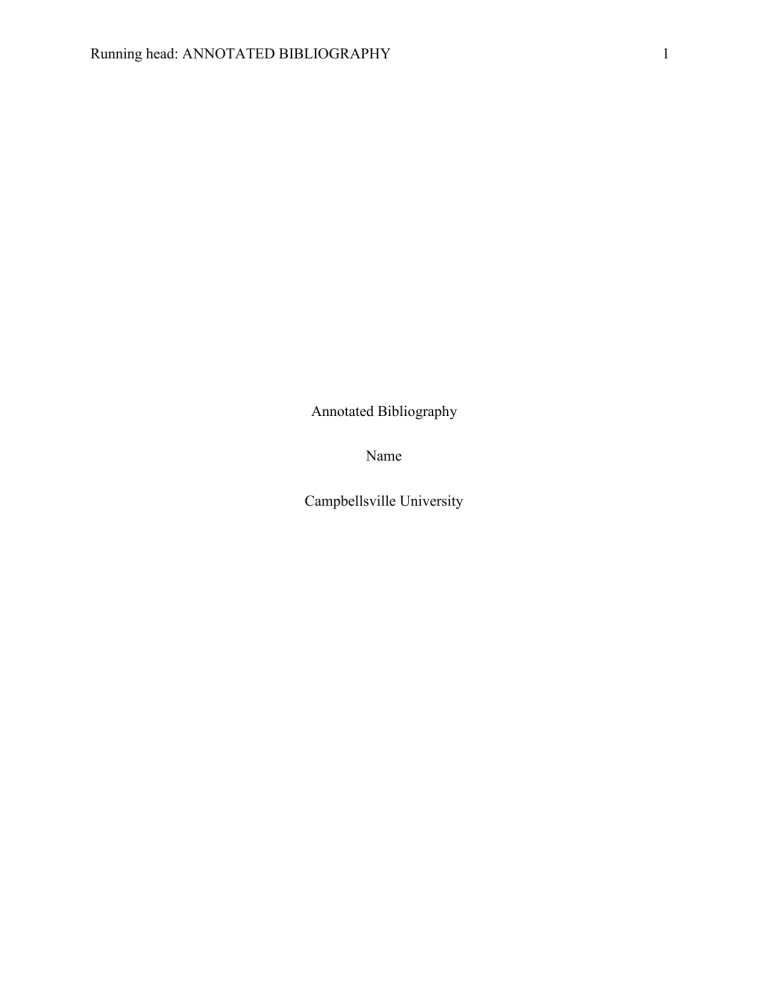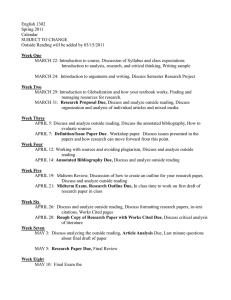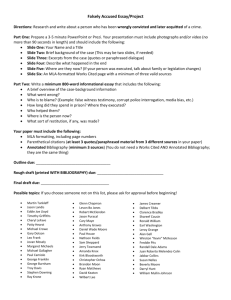ANNOTATED BIBLIOGRAPHY- Strategic Impact of Human Resource Management
advertisement

Running head: ANNOTATED BIBLIOGRAPHY Annotated Bibliography Name Campbellsville University 1 ANNOTATED BIBLIOGRAPHY 2 Ramlall, S., & Melton, B. (2018). The Role and Priorities of the Human Resource Management Function: Perspectives of HR Professionals, Line Managers, and Senior Executives. International Journal Of Human Resource Studies, 9(2), 9. doi: 10.5296/ijhrs.v9i2.14492 The study conducted by Ramlall and Melton (2018) examined the importance and effectiveness of human resources from the perspectives of top executives. The study also identified significant HR accomplishments and their alignment to business strategies. The study found out that senior executives realized the significance of HR activities to the organization's competitive advantage. The authors noted that human resource management takes more prominent positions when it is perceived strategic. The reason for this is because HRM takes a proactive role in developing the organization's people as a source of competitive advantage. Some of the accomplishments achieved by HR include diversity and inclusion, talent management, succession planning, workforce analytics, employee management, among many others. As organizations evolve, diversity and inclusion have become an essential element in an organization. It is the role of the human resource to push for diversity and inclusion by hiring from different regions, cultures, and religions. No organization can survive on a "buy" strategy when it comes to employability skills. Human resource management must use talent management to ensure there is a balance between talent acquisition and development. Talent management is also closely associated with succession planning. An excellent training program helps high potential workers to get the necessary experience to be future leaders. Through workplace analytics, human resource management can achieve effective operational and strategic ANNOTATED BIBLIOGRAPHY 3 objectives through efficient workforce management. The study concluded that human resource managers have become more competent and valued for the last three decades. Suryaningtyas, D., & Asna, A. (2017). The Strategic Roles of Human Resource Manager to Achieve Competitive Advantage in Hospitality Industry Jurnal Aplikasi Manajemen, 15(1), 169-175. The study conducted by Suryaningtyas and Ansa (2017) investigated the strategic roles of human resources managers in the hospitality industry. The study was conducted in three hotels and involved interviewing six human resource professionals. Previously, the role of human resource managers was mostly administrative. Today, human resource management has become more strategic. The study found that there are three roles of a strategic manager; strategic partner, employee champion, and administrative expert. The purpose of a strategic partner is to help the firm realize its long term objectives. Employee champion is another role within human resource management. Unlike the strategic partner, it is short term and focuses on employee needs and aims to improve commitment. Lastly, the role of an administrative expert is similar to the traditional role of a human resource manager. However, it has become more effective and efficient due to the application of advanced technology. To gain competitive advantage, human resources must become change agents. Becoming change agents requires human resource managers to identify inefficiencies among the employees and come up with relevant training programs to improve their skills. The authors’ also human resource managers must create policies to guide employees during their daily activities. These policies help to build organizational culture, a move that would give the organization a competitive advantage over its peers. The study concludes that human resource management is a factor that can be used to gain a competitive advantage. ANNOTATED BIBLIOGRAPHY 4

